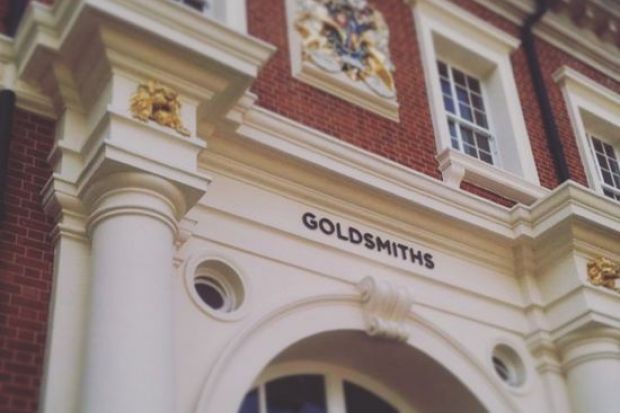Casualised staff in three departments at Goldsmiths, University of London have started a marking boycott over plans not to extend nearly 500 fixed-term contracts in the wake of the coronavirus crisis, a move they say will disproportionately affect BAME and female academics at the institution.
Meanwhile, the art department’s sole black permanent member of staff has withdrawn their labour because of what they describe as “unreflective and combative racism” in the university.
Goldsmiths’ senior management team has said it is planning to let 472 casual contracts expire this summer, covering 163 fixed-term contracts, along with 309 hourly paid associate lecturers and graduate trainee tutors.
According to campaigners, this will result in the university losing a large proportion of its BAME teaching staff. “Figures we have collected suggest around 75 per cent of those being laid off are from a BAME background,” one Goldsmiths academic on a fixed-term contract told Times Higher Education.
Across the institution, 22 per cent of associate lecturers and graduate trainee tutors who declared their ethnicity identified as BAME, while 46 per cent declared their gender as female.
“The university has said it would review all of these contracts, but people’s contracts are ending in June, July or August and the review process hasn’t even started. We feel we are being gaslighted. We don’t know what is going on,” the academic said.
Casual staff in three departments – anthropology, art, and media and culture – have begun a marking boycott in response to the proposed cuts, demanding that contracts be extended until October.
Then on 16 June, Evan Ifekoya, the sole black member of staff in the art department, announced that they were withdrawing their labour after a letter voicing support for precarious BAME staff that was circulated in the art department resulted in what they termed “unreflective and combative racism”. The letter had noted that five of the six BAME members of staff in the department were on fixed-term contracts and at risk, but many responses dismissed the racial aspect of the cuts, they said.
“I refuse to carry the burden of being the only permanently employed black member of academic staff within the art department at Goldsmiths. To be so within a team of 70-plus people – a tiny fraction of whom are people of colour – in 2020 is not acceptable,” they said.
Tom Greenwood, the anti-casualisation representative for the University and College Union’s Goldsmiths branch, said the situation “feels like it’s reached breaking point. It feels as though casualised and BAME colleagues, in the context of everything that has happened in the past few weeks around the world, are having to bear the brunt of all of this.
“We know universities are facing financial constraints; we understand that,” he added. “But they have choices to make, and we want them to think about that rather than simply say, ‘We are doing this because we have to.’ They could look at fairer distribution of pay across the institution, starting from the top down, for example.”
A spokesman for Goldsmiths said the institution was facing “new financial pressures and difficult decisions due to the impacts of the Covid-19 pandemic”.
“The college froze all recruitment earlier this year as a part of a range of Covid-19 financial stability measures,” he added. “Goldsmiths has not terminated any associate lecturer contracts early. The vast majority of associate lecturers would not normally be employed by us over the summer period. Where associate lecturers are currently doing work for Goldsmiths, we’d encourage them to claim in the usual way and they will be paid as normal.”
The spokesman said the institution “would always investigate any specific reports of racist behaviour made to the college as a priority and take appropriate action”.
“We fully recognise that simply stating we are committed to tackling racial injustice in all its forms is not enough and will be discussing with students and colleagues what more we need to do if we are to eliminate the scourge of racism from our community,” he continued.
Register to continue
Why register?
- Registration is free and only takes a moment
- Once registered, you can read 3 articles a month
- Sign up for our newsletter
Subscribe
Or subscribe for unlimited access to:
- Unlimited access to news, views, insights & reviews
- Digital editions
- Digital access to THE’s university and college rankings analysis
Already registered or a current subscriber? Login




